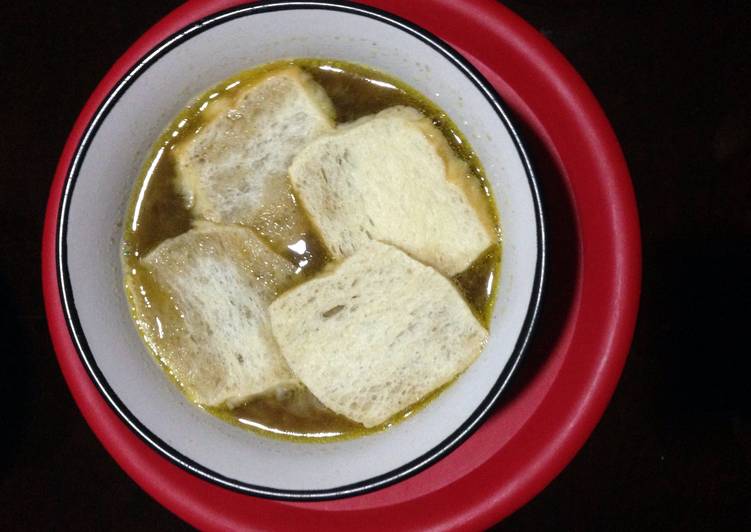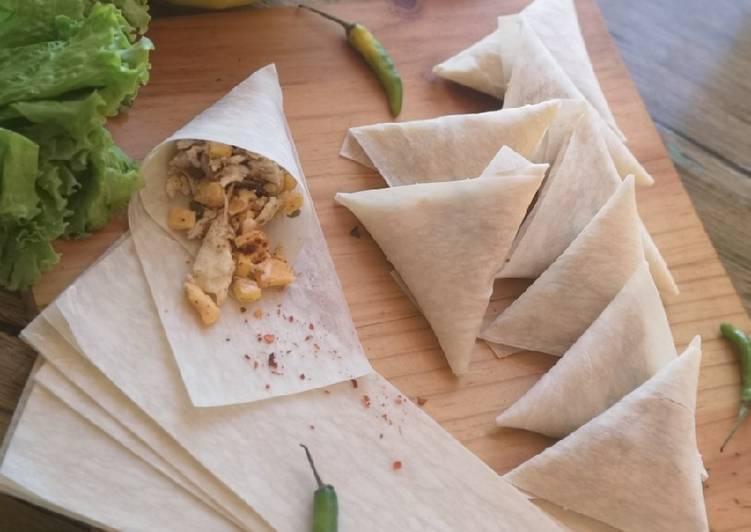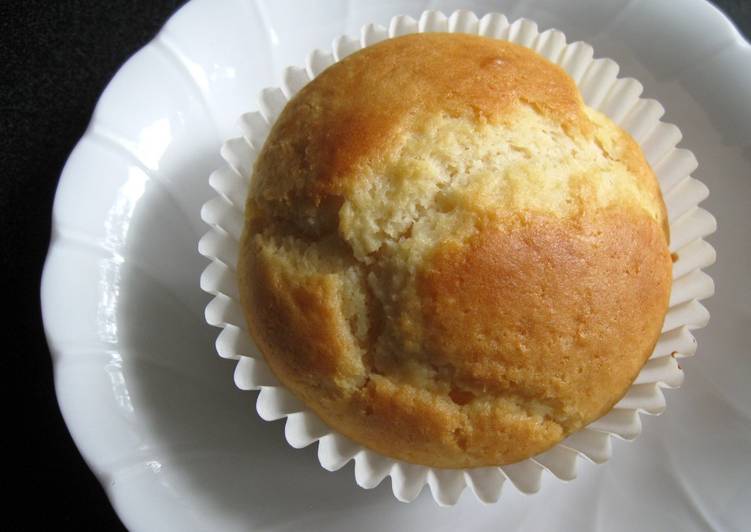
Hey everyone, it’s Louise, welcome to our recipe page. Today, we’re going to prepare a distinctive dish, pinoy-style onion soup. One of my favorites. This time, I’m gonna make it a little bit tasty. This is gonna smell and look delicious.
In a casserole, boil rice wash or water, Tamarind juice, onions, tomatoes and Radish. Lower fire, add in Shrimps, Kangkong, Sitaw and green long pepper. Stir in the lemon juice and sugar, then taste and adjust the seasoning. Ladle the soup into warm bowls and scatter.
Pinoy-style Onion Soup is one of the most popular of current trending foods on earth. It’s simple, it’s quick, it tastes delicious. It’s enjoyed by millions daily. Pinoy-style Onion Soup is something which I have loved my entire life. They’re fine and they look fantastic.
To get started with this particular recipe, we must first prepare a few ingredients. You can have pinoy-style onion soup using 10 ingredients and 9 steps. Here is how you cook it.
The ingredients needed to make Pinoy-style Onion Soup:
- Get 3 each Large red onions
- Prepare 1 tsp Sugar
- Take 1 pinch Salt
- Make ready 1 pinch Ground black pepper
- Take 1/2 stick Butter
- Prepare 2 tbsp Canned sliced mushrooms (optional)
- Make ready 1 liter Water
- Prepare 1 each Beef or chicken bouillon cube
- Take 4 each Medium-sized eggs
- Make ready 3 each Stale or day-old pan de sal
It's easy to make than you might think, and always SO delicious! Stay warm with this GREAT French onion soup! With beef stock base, slow-cooked caramelized onions, French bread, gruyere and Parmesan cheese. Is there anything more comforting on a chilly day than a hot bowl of French onion soup?
Instructions to make Pinoy-style Onion Soup:
- Peel and rinse the onions. Slice in half and slice each half into crescents before cutting in half again.
- Heat your soup pan and melt the butter until slightly bubbly.
- Add in the onions and cook under low to medium heat, stirring occassionally until the onions are well-coated with butter.
- Add the sugar and salt and continue to cook under low heat until the onions turn a golden to dark brown. You may add the mushrooms and saute slightly at this point. - - IMPORTANT NOTE: Be patient if the caramelizing of the onion slices take a while. You do not want high heat and risk burning your onions. :)
- Add the water and bouillon cube. Alternatively, you can use beef or chicken stock if you have it available. - - *Note: Prepared store-bought stock is not readily available in the Philippines versus beef or chicken cubes, making this the usual option for Pinoy cooks. :)
- Keep at medium heat and boil for about 15-30 minutes, adding the ground pepper in and whatever additional spices you would like. The longer you boil, the more flavorful the soup will be.
- While the soup is simmering, slice your pan de sal (or bread of choice) horizontally into 1/4-inch thick slices. This will be your soup's "topping".
- Turn off the heat once soup is cooked down to desired flavor.
- To serve, crack a whole egg into your soup bowl and pour your hot soup over it. Top with your bread slices.
With beef stock base, slow-cooked caramelized onions, French bread, gruyere and Parmesan cheese. Is there anything more comforting on a chilly day than a hot bowl of French onion soup? Michel Roux, the French-born chef of England's Le Gavroche, takes a Normandy spin on this classic soup with a splash of cider and a whole lot of subtlety. Chicken Sotanghon Soup is a Filipino-style soup made with bite-sized chicken, cellophane noodles and vegetables in a ginger-flavored broth. This Filipino-style noodle soup is typically made with chicken parts simmered in aromatics and shredded into strips.
So that is going to wrap it up for this special food pinoy-style onion soup recipe. Thank you very much for reading. I am sure you can make this at home. There is gonna be more interesting food in home recipes coming up. Remember to save this page in your browser, and share it to your family, friends and colleague. Thank you for reading. Go on get cooking!



